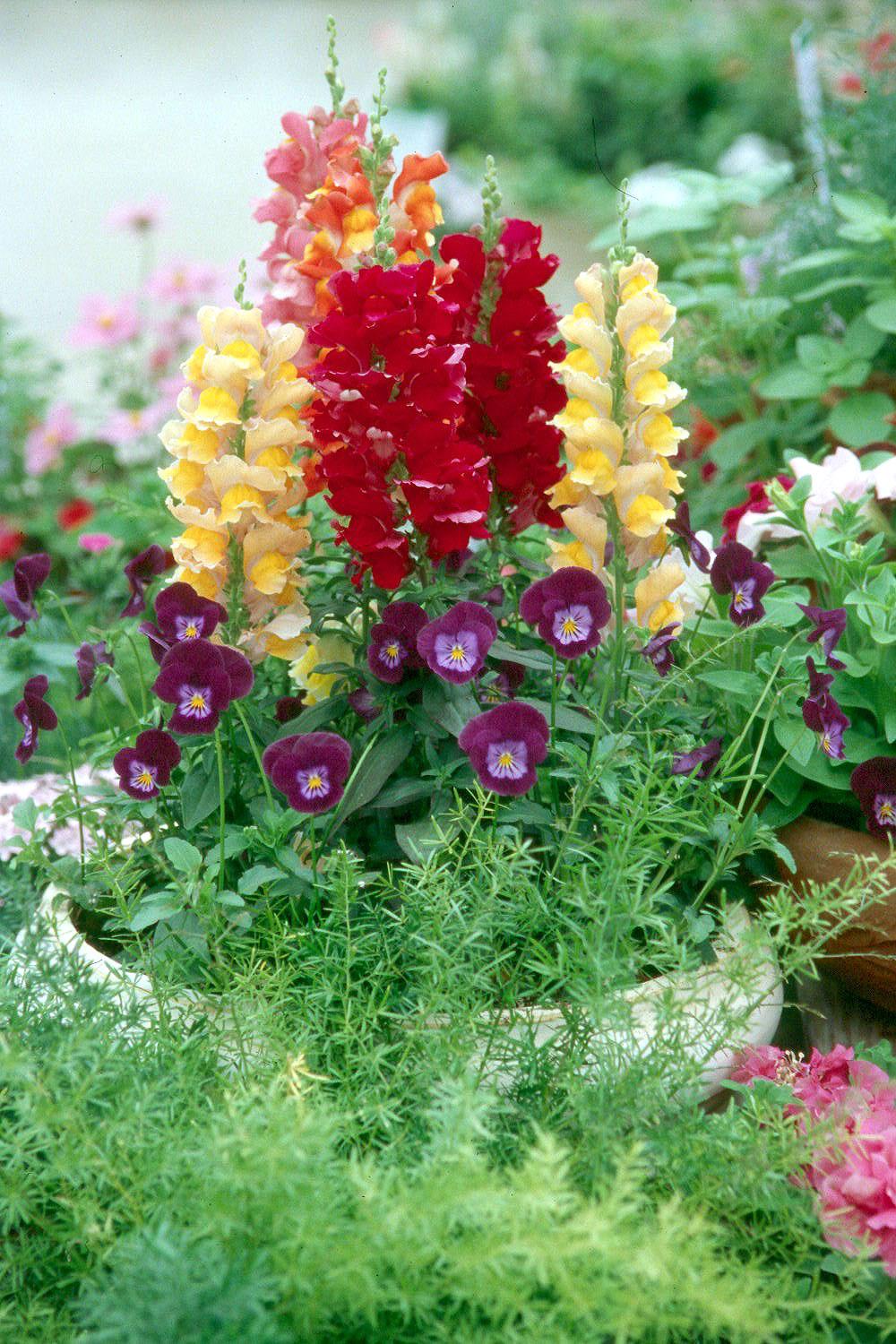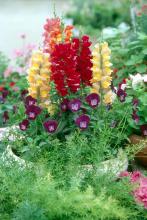Information Possibly Outdated
The information presented on this page was originally released on September 17, 2001. It may not be outdated, but please search our site for more current information. If you plan to quote or reference this information in a publication, please check with the Extension specialist or author before proceeding.
Container gardening is ideal for fall color
By Norman Winter
MSU Horticulturist
Central Mississippi Research & Extension Center
In the 18th century, the symbol of the pineapple was a welcome sign to visitors. Today, even if you don't do a lot of gardening, some well-placed colorful planters can welcome family and guests to your home. The gorgeous fall colors don't have to be limited to the yard or landscape, but can be artistically arranged as floral accents at your home's entrance.
Container gardening is not just for the spring or summer. With flowers like pansies, panolas, violas, flowering kale or cabbage, dianthus and chrysanthemums, the choices for your fall planter are great. To add greenery to the planters, choose from variegated ivy, asparagus fern, edible lettuce, or small shrubs like juniper or ligustrum.
Why not use herbs in your bowl or planter? You could fill it with oregano, lemon, thyme, parsley, cilantro, chives, mints or erect rosemary topped with your winter flowers. Harvest the herb leaves for fresh use in holiday dishes like pork or poultry, or dry and store them in airtight containers for later use. Your garden center is loaded with herbs right now.
Select a container that will give plant roots room to grow, but not so much that they will fill the pot. Consider the mature size of the plants you will be growing, and follow spacing recommendations.
Pots with a small amount of soil dry out faster and require frequent watering, so the deeper the pot, the less watering it will need. Small pots or hanging baskets also make plants more susceptible to cold damage.
Container-grown plants have a benefit other than being moveable when extra cold weather occurs. You can select and modify the soil to grow almost any plant. Containers can provide garden plots in high-rise apartments or homes with no traditional space for a garden. Their mobility gives the option of placing them in the sun or shade as required by the specific plant. The lightweight pots that look like Old World clay are reaching the price level of even the tightest pocket books.
The potting mix should be light and airy. This is one place to avoid skimping. Many bargain soils sold by the pound are heavy and don't drain well enough. Large containers with this type soil would be extremely hard to move around. Today's best ready-made mixes are weed free and have controlled-release fertilizers added.
Planting in containers is much the same as planting in the landscape. Place bedding plants, shrubs or trees with the top of the root ball even with the soil line. Be an artist, and you can make your own colorful fall displays. Place large plants in first, then place smaller plants around the perimeter and in pockets created by greenery
Keep the plants well watered as they get established, keeping in mind that containers dry out faster than the flowerbeds. To keep plants well fed and blooming, use a time-released granular fertilizer or water with a dilute-liquid fertilizer.
The Pacific Northwest in known for the gorgeous ways they mix plants in baskets, bowls or containers on the street. These containers have six or seven different awesome colors. We can do the same, and there is hardly a better time than the fall.








